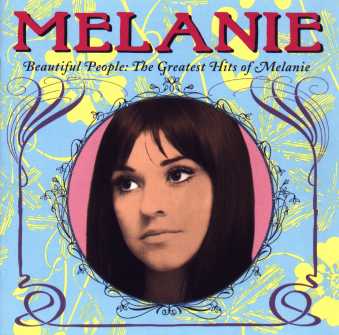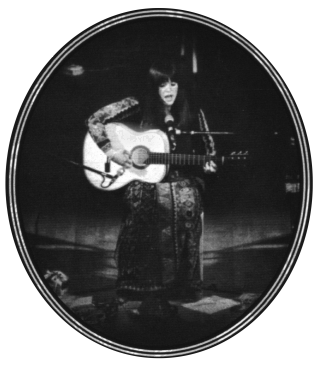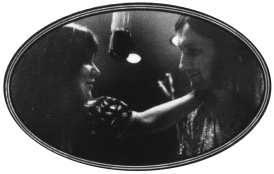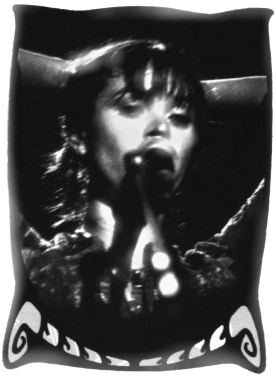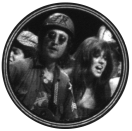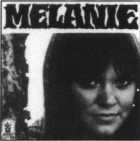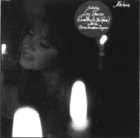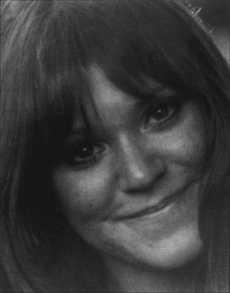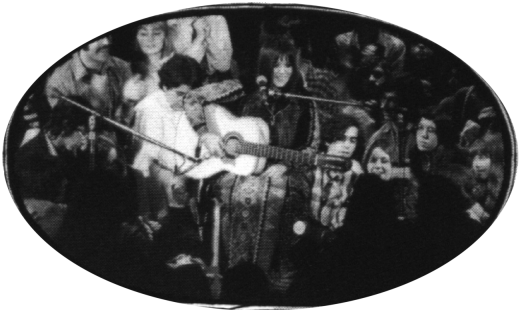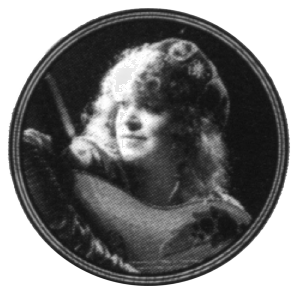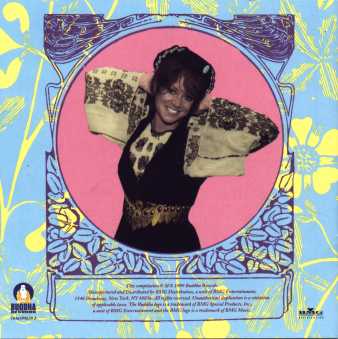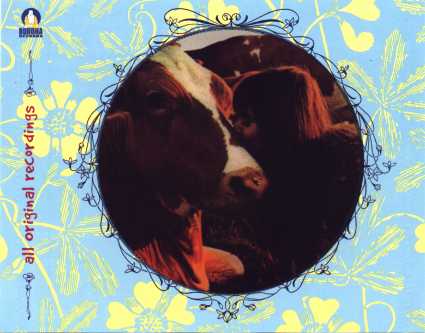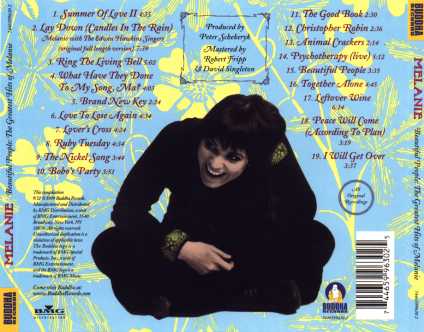Buddha -
1999 CD
|
MELANIE Beautiful
People: The Greatest Hits of Melanie
On August
15, 1969, 22-year old Melanie Safka stepped onstage at the Woodstock Music
& Art Fair outside Bethel, N Y. in front of a soggy but enraptured crowd.
Sandwiched between Ravi Shankar and Arlo Guthrie she played the songs,
"Beautiful People" and "Birthday of the Sun" and emerged
overnight as a star— and as folk music's most endearing flower child. "After
Woodstock I became the festival queen," Melanie recalls 30 years later. "I was really lucky that I got to be
there, because I wouldn't know what Woodstock was if I hadn't been there. A
lot of people have the wrong idea about what it was, even people who were
there, because of the cynicism that came from it just because the ideals
didn't come to fruition. Drugs and sex? Yeah, but there was something else:
there was some kind of spiritual awakening. To me?
There was almost a renaissance on Earth. Music was drawing from all these
sources and everything was opening up. The music industry didn't know what
was happening. Things that were impossible to make hit records became hit
records, things that they predicted to be hits weren't. The motivation of so
many of those artists was truly just to get out their music, not to be But even
as she basked in the spotlight, Melanie was starting to bristle at her
innocuous image. "I was who I am—I smiled a lot at the camera. I was
cherubic, not angular, so it just all seemed to fit," she says.
"But I started to feel like I was an unwilling victim, that this was
something that was happening to me, but not because of me. Those were the
years that the image became so strong: I was this bliss ninny, the
penultimate flower child. But my whole reason for being was to be painfully real,
and 'flower child' wasn't quite getting that." Despite
her reputation as the Princess of Peace, Love and Understanding. Melanie was
also one of pop music's fiercest advocates for artistic integrity. While many
of her acoustic guitar-wielding peers were protesting and preaching, she
crafted meaningful, moving music that championed change from within. As a
singer she valued expression over technique: Her raspy, riveting voice was a
gloriously untamed instrument, soaring from a seductive coo to an overpowering
wail with all the finesse of a force of nature. In such disarmingly In 1971,
she grew tired of fighting with her record company for creative control and
at the height of her stardom; she and husband-producer Peter Schekeryk formed
their own independent label, Neighborhood Records. And she's the first to
concede the brutal irony that after winning her creative freedom, bouncy
numbers as "What Have They Done to My Song, Ma?" and "The
Nickel Song," she railed against the bottom-line mentality driving the music
industry she scored the biggest hit of her career with the tongue-in-cheek Born Feb.
3, 1947 in Queens, N.Y. to a Ukrainian father and an Italian mother who Sang
in jazz clubs, Melanie was a self-professed loner who divided her college
years between a drama career and playing Greenwich Village coffeehouses. At
age 20, she met music publisher-producer Schekeryk, who got her a deal with
Columbia Records that lasted for two
The
album's surprise hit was "Brand New Key," a throwaway ditty that
seemed out of place compared to the urgency driving the rest of the album.
Originally written with a Cajun feel and later recast as a convincing blues,
the song cleverly cloaks a feminist statement ("For somebody who don't
drive, I've been all around the world/some people say I've done alright for a
girl") underneath its playful double entendre about skating and sex. No
wonder it's been covered three times in the last four years, by artists
ranging from country singer Deana Carter to Minnesota alternative pop trio Neighborhood
shut down in 1975? But Melanie's work during this period represents some of
her most nuanced singing and most mature songwriting. The
haunting"Together Alone," from 1972's Stoneground Words, was an
enticing slice of blue-eyed soul worthy of Laura Nyro. 1974's Madrugada
boasted the Caribbean- inspired "Love to Lose Again" and a touching
cover of Jim Croce's "Lover's Cross' that showed off her
still-formidable interpretive skills. As part of its 1999 rebirth, the newly
re-activated Buddha Records has gathered Melanie's most memorable Buddah and
Neighborhood recordings and book ended them with two of her favorite recent
compositions: the defiant "I Will Get Over," a choir -
fueled counterpart to Gloria Gaynor's "I Will Survive"; and
"Summer of Love II" (the title is a reference to Woodstock being
the unofficial sequel to 1967's Summer of Love), a heartfelt tribute to the fans who make annual pilgrimages to
Bethel which she wrote on the eve of performing at the 25th anniversary of
Woodstock in 1994. While the instrumentation and feel of the new tracks are
more contemporary, the David
Okamoto, May 1999 David Okamoto is the music editor of the Dallas Morning
News and a contributing editor to ICE Magazine. SUMMER OF LOVE Step inside the shoes I
walk in Walk them down onto a
pasture Where the green may have
been yellow But the music will
remember In the summer of love Where we raged and reached
for freedom When we kissed and loved a
stranger And we asked our silly
questions And would not settle for
the reasons Did we rise up to the
cause Did we cause the thing to
happen? When humanity awakened But the music will
remember In the summer of love There's a power on a
hillside There was magic in the
moment It's a farmland that lies
fallow But the dream grows on
forever Cynics laugh and make it
less then The extraordinary wonder When humanity awakened Ah but the music will
remember In the summer of love Lay down, lay down In the summer of love When humanity awakens Then the music will
remember Woodstock Is Why did I write Summer of Love II? As the
Indians believe that there are certain places that are sacred, there is
something magical and mystical on the site of the original Woodstock. What
makes the site significant? It has to do with the "pull" a place
has, because a great event has occurred there. Woodstock had that
"thing" that spiritually bands together. It is like a rare moment
one may have experienced, say on Christmas Eve, or during a crisis--where
people become that same big common denominator. It goes
beyond mere survival and it strikes a chord in all of us. Now this truth is
still lingering on that site, accessible, tangible and ready to be received.
When people make a pilgrimage there, it is a walk toward humanity. Regardless
of what title or names are given to the power and the feelings of this
festival and the way it connects us, it is important to recognize it and
acknowledge its existence. It was real, and is real, and that knowledge is an
affirmation that we are spiritual beings. Melanie,
May 1999 ©1999
Melanie Safka |
|
1. Summer
Of Love II (J) 2. Lay
Down (Candles
In The Rain) Melanie with The Edwin
Hawkins Singers (original full length version) (C) Buddah
single #167 Pop #6 /
chart debut: 4/25/70 3. Ring
The Living Bell (F) Neighborhood
single #4202 Pop #31 /
chart debut: 1/29/72 AC #18 /
chart debut: 2/5/72 4. What
Have They Done To My Song, Ma? (C)
Buddah
single #268 (b-side) 5. Brand
New Key (F) Neighborhood
single #4201 Pop #1 /
chart debut: 10/30/71 AC #5 /
chart debut: 11/20/71 6. Love
To Lose Again (I) Neighborhood
single #4214 7. Lovers
Cross (I) Neighborhood
single #4215 Pop #109
/ chart debut 8/17/74 8. Ruby
Tuesday (C) Buddah
single #202 Pop #52 /
chart debut: 12/5/70 |
9. The
Nickel Song (E) Buddah
single #268 Pop #35 /
chart debut: 1/22/72 AC #30 /
chart debut: 2/5/72 10.
Bobo's Party (A) Buddah
single #113 11. The
Good Book (E)
Buddah
single #224 12.
Christopher Robin (A) 13.
Animal Crackers (A) Buddah
single #167 (b-side) 14.
Psychotherapy (live) (D) 15.
Beautiful People (B) Buddah
single #135 16.
Together Alone (G) Neighborhood
single #4207 Pop #86 /
chart debut 10/21/72 17.
Leftover Wine (C) 18. Peace
Will Come (According To Plan) (D) Buddah
single #186 Pop #32
chart debut: 8/22/70 19. I
Will Get Over (I) All
Tracks Produced by Peter Schekeryk All Songs
Written by Melanie Safka Except
"Lover's Cross" (Jim Croce) and "Ruby Tuesday" (Mick
Jagger/Keith Richards) |
A. From
the LP Born To Be - Buddah #5024 B. From
the LP Melanie - Buddah #5041 Album #196 chart debut: 11/15/69 C. From
the LP Candles In The Rain - Buddah #5060 Album #17 / chart debut 5/9/70 D. From
the LP Leftover Wine Buddah #5066 Album #33 chart debut 9/26/70 E. From
the LP The Good Book Buddah #95000 Album #80 / chart debut: 2/27/71 F. From
the LP Gather Me Neighborhood #47001 Album #15 / chart debut 11/13/71 G. From
the LP Stoneground Words Neighborhood #47005 Album #70 / chart debut:
11/11/72 Courtesy of MCA Records, Inc., under license from Universal Music
Special Markets, Inc. H. From
the LP Madrugada - Neighborhood #48001 Album #192 / chart debut 5/11/74
Courtesy of MCA Records, Inc., under license from Universal Music Special
Markets, Inc. I.
(P) 1999
Peter Schekeryk Courtesy of Peter Schekeryk and Melanie Safka II.
J. Radio
Single Only (P) 1999 Peter Schekeryk Courtesy of Peter Schekeryk and Melanie
Safka |
|
Compilation
Produced by Mike Ragogna & Peter Schekeryk Mastered
by Robert Fripp & David Singleton Product
manager: Mandana Eidgah Production
Coordinator: Jeremy Holiday Master
Tape Transfers: Bill Inglot & Dennis Ferrante Package
Design: David K. Kessler/NYC Compilation
& Sequence: Mike Ragogna Liner
Notes: David Okamoto Research
Assistance: Gary E. Mansfield and Tommy West Photos
Courtesy of Melanie Safka and Peter Schekeryk, BMG Photo Archives Print Ads
Courtesy of Howard Fields Archives:
Joanne Feltman, Glenn Korman, Tom Tierney and Claudia Depkin Project
Coordination: Arlessa Barncs, Lisa Butler, Christina DeSimone, Robin Diamond,
Felicia Gearhart, Laura Gregory, Donna Malyszko, Robin Manning, Ed Osborne,
Larry Parra, Bruce Pollock, Dana Renert, Catherine Seligman, and Steve
Strauss Thanks to
Alex Miller, Eric Hodge and Frank Ursoleo Special
thanks to Gary Newman and Mike Jason For their
support, Buddha Records thanks BMG Entertainment: Strauss Zelnick, Kevin
Conroy, Dennis Petroskey, Bill Wilson, Patricia Feighery, Scott Richman; BMG
Distribution: Pete Jones, Rick Bleiweiss, Rick Cohen Come
visit Buddha at www.BuddhaRecords.com
Booking
into: Producers Inc. (813) 988-8333
|
||
Back
to Chronology
Back to Melanie
